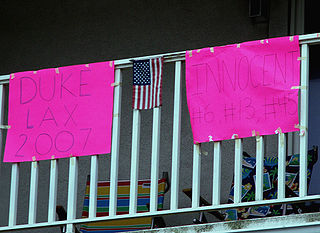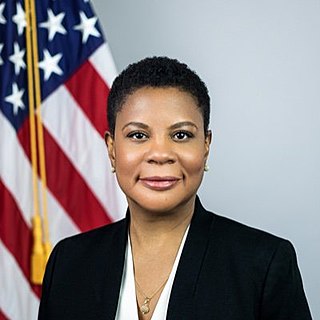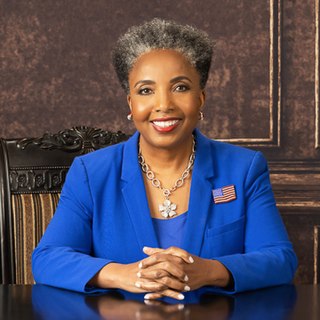Related Research Articles
Anne Allison is a professor of cultural anthropology at Duke University in the United States, specializing in contemporary Japanese society. She wrote the book Nightwork on hostess clubs and Japanese corporate culture after having worked at a hostess club in Tokyo.
The Duke lacrosse case was a widely reported 2006 criminal case in Durham, North Carolina, United States, in which three members of the Duke University men's lacrosse team were falsely accused of rape. The three students were David Evans, Collin Finnerty, and Reade Seligmann. The accuser was Crystal Mangum, a student at North Carolina Central University who worked part-time as a strip tease dancer. She alleged that the rape occurred at a party hosted by the lacrosse team, held at the Durham residence of two of the team's captains, and where she had worked on March 13, 2006.

Jennifer A. Richeson is an American social psychologist who studies racial identity and interracial interactions. She is currently the Philip R. Allen Professor of Psychology at Yale University where she heads the Social Perception and Communication Lab. Prior to her appointment to the Yale faculty, Richeson was Professor of Psychology and African-American studies at Northwestern University. In 2015, she was elected to the United States National Academy of Sciences. Richeson was elected to the American Philosophical Society in 2022. Since 2021, she has been a member of the President’s Council of Advisors on Science and Technology (PCAST).
Houston Alfred Baker Jr. is an American scholar specializing in African-American literature and Distinguished University Professor of English at Vanderbilt University. Baker served as president of the Modern Language Association, editor of the journal American Literature, and has authored several books, including The Journey Back: Issues in Black Literature and Criticism, Modernism and the Harlem Renaissance (1987), Blues, Ideology, and Afro-American Literature (1984), and Workings of the Spirit: The Poetics of Afro-American Women's Writing (1993), as well as editing literary collections. Baker was included in the 2006 textbook Fifty Key Literary Theorists, by Richard J. Lane.

Kimberlé Williams Crenshaw is an American civil rights advocate and a scholar of critical race theory. She is a professor at the UCLA School of Law and Columbia Law School, where she specializes in race and gender issues.

The 2006 Duke University lacrosse case resulted in a great deal of coverage in the local and national media as well as a widespread community response at Duke and in the Durham, North Carolina area.
The Group of 88 is the term for professors at Duke University in North Carolina who in April 2006 signed a controversial advertisement in The Chronicle, the university's independent student newspaper. The advertisement addressed the Duke lacrosse case of the previous month, in which a black stripper falsely accused three white members of Duke's lacrosse team of raping her at a party. The incident was under police investigation when the ad was published, and the signatories were criticized for commenting on the case at that stage. They stated that they were trying to start a dialog about issues of race and sexual assault at the university.

Alondra Nelson is an American academic, policy advisor, non-profit administrator, and writer. She is the Harold F. Linder chair and professor in the School of Social Science at the Institute for Advanced Study, an independent research center in Princeton, New Jersey. Since March 2023, she has been a distinguished senior fellow at the Center for American Progress. In October 2023, she was nominated by the Biden-Harris Administration and appointed by United Nations Secretary-General António Guterres to the UN High-Level Advisory Body on Artificial Intelligence.

Susan Herbst is an American political scientist and academic administrator who served as the 15th president of the University of Connecticut. She was named president on December 20, 2010, and took office on June 1, 2011. She succeeded Michael J. Hogan and was the first woman to be selected as the University of Connecticut's president since the school's founding in 1881. In August of 2019, Herbst was succeeded by Thomas C. Katsouleas.

Carol Miller Swain is an American political scientist and legal scholar who is a retired professor of political science and law at Vanderbilt University. She is a frequent television analyst and has authored and edited several books. Her interests include race relations, immigration, representation, evangelical politics, and the United States Constitution.

William A. "Sandy" Darity Jr. is an American economist and social scientist at Duke University. Darity's research spans economic history, development economics, economic psychology, and the history of economic thought, but most of his research is devoted to group-based inequality, especially with respect to race and ethnicity. His 2005 paper in the Journal of Economics and Finance established Darity as the 'founder of stratification economics.' His varied research interests have also included the trans-Atlantic slave trade, African American reparations and the economics of black reparations, and social and economic policies that affect inequities by race and ethnicity. For the latter, he has been described as "perhaps the country’s leading scholar on the economics of racial inequality."
Duchess Harris is Special Assistant to the Provost for Strategic Initiatives at Macalester College. She is an African-American academic, author, and legal scholar. She is a professor of American Studies at Macalester College in Saint Paul, Minnesota, specializing in feminism, United States law, and African American political movements. She also teaches a course on Black Health at the University of Minnesota Law School.

Karla Francesca Holloway is an American academic. She is James B. Duke Professor of English & Professor of Law at Duke University, and holds appointments in the Duke University School of Law as well as the university's Department of English, Department of African & African American Studies, and Program in Women's Studies. Holloway is a member of The Wintergreen Women Writers Collective
Darlene Clark Hine is an American author and professor in the field of African-American history. She is a recipient of the 2014 National Humanities Medal.
Eduardo Bonilla-Silva is an American sociologist and professor of sociology at Duke University. He was the 2018 president of the American Sociological Association.

Mary Pattillo is an American professor and ethnographer of African American studies at Northwestern University. She is the Harold Washington Professor of Sociology and chair of the Department of Black Studies. As of 2016, she has served as director of undergraduate studies in African American studies and has been a faculty associate in Northwestern's Institute for Policy Research since 2004. She has formerly served as chair of Northwestern University's department of sociology.
Adia Harvey Wingfield is a professor of sociology at Washington University in St. Louis and the 2018 President of Sociologists for Women in Society. She is the author of several books, including No More Invisible Man: Race and Gender in Men's Work, and articles in peer-reviewed journals including Social Problems, Gender & Society, and Ethnic and Racial Studies. She has lectured internationally on her research.
Ashley E. Jardina is an associate professor of Political Science at George Mason University and author.

Juliet Hooker is a Nicaraguan-born political scientist who currently holds the Royce Family Professorship of Teaching Excellence in Political Science at Brown University. She is a political philosopher who focuses on racial justice, the theory of multiculturalism, and the political thought of the Americas.

Ralina Joseph is an American academic. She is a professor in the Department of Communication at the University of Washington, examining representations of race, gender, and sexuality in popular media.
References
- ↑ "McClain, Paula Denice, 1950-". Virtual International Authority File. Retrieved 3 June 2014.
- ↑ "Academic Council Elects Paula McClain as New Chair". Feb 22, 2007.
- ↑ "Paula McClain to Be the First African American Dean of a School at Duke University". May 10, 2012.
- ↑ "Prof. Paula D. McClain – Vitae" . Retrieved Nov 4, 2021.
- ↑ "Prof. Paula D. McClain – Books". Archived from the original on 2012-12-14. Retrieved Sep 30, 2012.
- ↑ "Journal of Women, Politics & Policy - Editorial board". Taylor and Francis. Retrieved 3 June 2014.
- ↑ "Prof. Paula D. McClain – CV" (PDF). Retrieved Nov 4, 2021.
- ↑ "Obama vs. the First Black President". Jan 19, 2009.
- ↑ "Is America Still Divided By Issues Of Race?". Mar 20, 2009.
- ↑ Quek, Tracy (Aug 28, 2010). "'Post-racial' America still a dream". The Straits Times (Singapore).
It's dispiriting and disheartening that we are still dealing with these kinds of issues.
- ↑ Stuart Taylor and KC Johnson, Until Proven Innocent: Political Correctness and the Shameful Injustices of the Duke Lacrosse Rape Case (2007), p. 338, ISBN 0-312-36912-3.
- ↑ Chen, Saidi (June 8, 2006). "Black professors discuss lax effects". Duke Chronicle. Retrieved 2018-04-21.
- ↑ "Duke U. Reinstates Men's Lacrosse Team Under New Codes of Conduct". June 6, 2006.
- ↑ Paula McClain – Biography